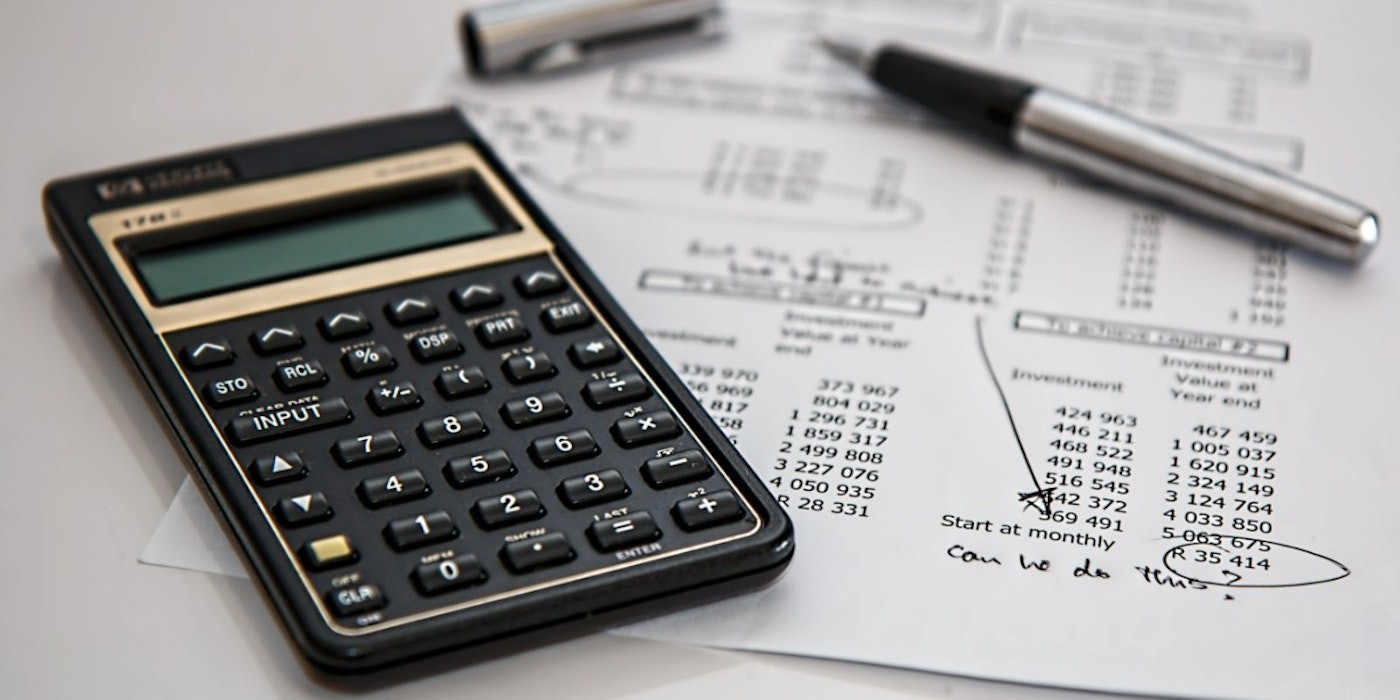What Credit Score Do You Need for a Personal Loan?

When you’re looking to make large purchases, sometimes you may find yourself lacking the entire amount needed to make said purchase. That’s where personal loans come into play.
Many people ask the same question about personal loans—‘do I need a particular credit score for a personal loan?’ The short answer is yes, but there are many things we need to look at as personal loans are always given on a case-by-case basis. Don’t stress, we’re going to explain everything you need to know about credit scores in relation to personal loans.
Let’s get started!
Firstly, what are personal loans?
The concept of a personal loan is pretty simple. You want or need to purchase something, but in order to make the purchase, you need additional cash. In this instance, you usually have two options.
If you have the time available, the first option is that you simply save up the amount needed through your income stream(s), however long that may take. Unfortunately, sometimes we need money sooner rather than later and we need a helping hand.

This leads us to the second option, which is to borrow money - in this case in the form of a personal loan.
The purpose of a personal loan can vary from person to person. For example, some might need to purchase a big-ticket item, others pay utility bills. Some Australian’s occasionally take loans out to pay off other loan payments and consolidate debts. No matter what you need a personal loan for, traditional lenders like the big banks you’ll likely borrow money from will take into consideration many factors when reading through any personal loan applications—one of them being, your credit score.
What types of loans are there?
There are various types of loans, but the main thing you need to know about loans is the difference between a secured and an unsecured loan.
Secured loans are loans that require collateral as a determinant of being lent the money. In the event you default on the loan, lenders can claim that collateral to cover the cost of the loan. This will likely result in most lenders offering lower interest rates.
An unsecured personal loan doesn't require collateral, making it ‘unsecured’ in terms of the lender. Since these sorts of personal loans are considered riskier, it is one of the main factors lenders and credit providers will look to when they require you to pay higher interest rates.
What is the minimum credit score for a personal loan?
Typically, the minimum credit score required for most credit providers to begin considering your personal loan application is 550. Anything below that is considered a poor credit score, and this can put your chances of loan approval very much in the danger zone. Now, this can vary from lender to lender. However, in most instances being above 550 is the safe zone.
Let’s take a further look at credit score ratings:
549 & Below
Experian Band
If you’re scoring anything below 549, you’re considered to have a poor credit score and, in some cases, no credit history at all.
550 - 624
Experian Band
While this is a fair score range to be in, for larger loans with lower interest, you will need to improve your credit rating.
625 - 699
Experian Band
This range is considered to be an average credit score in Australia.
700 - 799
Experian Band
This is considered a good credit score and will put you in a better position to get a larger loan amount with a lower interest rate. It shows to the lenders that you have positive financial habits.
800 - 1000
Experian Band
Achieving a score of 800+ is incredible. It’s an excellent score that’s far beyond the national average - lenders will be chomping at the bit to give you a loan…make sure to take your time to negotiate with any lenders for a better deal.
You always want to aim to have a higher credit score as this depicts you have a solid financial history and you can be trusted with any loan amount. It’s important to research your options and consult with professionals to see how you can improve your financial standing.
How are these credit scores calculated?
Credit scores are calculated by factoring in various aspects of your personal and financial information. More comprehensive credit reporting for larger loans can get quite complicated, but most credit reporting agencies will consider the following factors when creating your credit report:
- Your repayment history - do you have any late or early repayment fees on your account?
- The number of accounts in your name - are you handling multiple accounts and ongoing fees well?
- Credit used versus how much is available.
- The duration of your credit history.
If you’ve just begun building a credit history, then you’re unlikely to get a loan or access to many account options. Why? Because you’ve yet to prove yourself as a trustworthy borrower. You have minimal payment history, few (if any) accounts, and likely an unsubstantial credit availability.
How do I find my credit score?
It’s actually extremely easy to find and understand your credit score in Australia. There are several credit reporting bodies that are available to you to find out what your credit score is currently. The main options are Equifax, Illion, and Experian. There are also other options like Clear Score.
To access your credit score, you’re going to need to provide various pieces of information which will confirm your identity. The following is needed:
- Your full name as listed on your birth certificate.
- Your date of birth.
- Your contact address.
- Your driver’s licence number.
I have an average credit score. How can I improve it?
This isn’t an uncommon place to be in, but you don’t want to be in this category forever, so you need to improve your credit score. Good news, all hope is not lost! There are various methods you can start applying in your everyday life to improve a bad credit score.
Let’s take a look at your options!
Avoid making late payments
The best thing you can do to ensure you’re making improvements on your credit score is to ensure all your payments are going off on time and in full. Late payments and/or defaults might not seem like the end of the world, but they have a major impact on your credit score in a negative way.
Try not to overspend money or exceed a realistic credit limit
It’s incredibly easy to overspend, exceed your credit limit and end up with bad credit. This is a fast track to a bad credit rating and a higher interest rate on your next loan. The goal you need to set for yourself is to stay within a realistic credit limit. What does that mean? It means not overspending or purchasing unnecessary items and products. You want to spend less and save more towards these loans, credit cards, and accounts. This way, you’re reducing your debt, and in some cases, you still have access to the money if it becomes necessary again.
Consider debt consolidation with an expert’s help

If you think you’re in over your head, you can always consider getting the help of an expert. Debt consolidation is one of the best ways to ensure you’re working away at improving a bad credit score instead of putting it at further risk. When you consolidate your debt, what you’re doing is making it so that you have one monthly obligation to make in terms of paying off your debts instead of several smaller amounts to several lenders. It also can reduce the total amount you pay back in terms of interest and ongoing fees.
Keep a regular eye on your financial situation

While you’re making all this progress, don’t think you can take your eye off the ball. It’s important to ensure you’re making an effort to keep an eye on your financial situation on a regular basis. Check your accounts regularly to see how you can pay them off better and faster. Understand your income and adequately allocate the funds.
Request a regular credit report to prevent fraud
In order to prevent fraud; we recommend requesting a regular credit report. This means always checking your accounts and credit card statements to ensure nothing suspicious is taking place in terms of unknown purchases. Additionally, check your credit report itself to determine if something is happening that is causing a problem.
Limit or Reduce Credit Applications

Every time you request a loan, account or credit card, it’s recorded, and it goes against your credit record. When you over apply, you’re putting yourself in a position where you look more financially unstable, and it can shake confidence in you as a borrower by negatively affecting your credit score. So, take a step back and try to reduce your appetite for credit and limit yourself to only applying when necessary and when it’s most prudent.
Summary
So there you have it, there often is a minimum credit score required for a personal loan, but all is not lost for anyone staring down the barrel of bad credit scores. Credit is a tricky thing, but once you get the hang of it, it’s an awesome tool that you can use to build a better life for yourself. Getting your financial situation under control is the key, and that’s where a good credit score comes from beyond just the use of credit itself.
When you believe you’re ready to get a loan of your own, head on over to Driva, and we can hook you up with some of Australia’s best lenders. It’s a simple application before we show you the options best suited for you. Or use our Personal Loan Calculator to understand your borrowing power and make informed decisions.
FAQs
Can I get a personal loan with a 620 credit score?
It all depends on what credit agency score a lender goes off to determine if you’d qualify for a loan at 620. While 620 falls in the good-average range for Experian and Illion, it doesn’t guarantee success. When it comes to Equifax, 620 falls into the fair-average range, which makes it even more difficult to get a personal loan as it’s just a step above below average.
What kind of credit score do you need for a personal loan of $10000?
To get a loan of $10,000, you’d likely need to be in the second to last or the highest tier of the credit scoring system. This means for Illion and Experian; you’d need 700+ and Equifax 726+.
Can I get a personal loan with a 546 credit score?
While it’s by no means impossible, it’s far more difficult to get a personal loan with a score of 546. For Experion, 546 is below average. While on the other hand, it’s in the average range for Illion. Finally, it’s in the fair range for Equifax. So, you’d need to find a lender who goes by the best credit reporting agency for your particular credit score.
.jpeg?ixlib=gatsbyFP&auto=compress%2Cformat&fit=max&rect=0%2C0%2C800%2C800&w=500&h=500)



